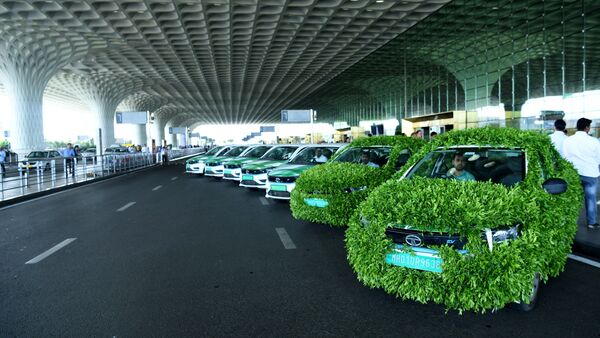Himachal Pradesh Cabinet, led by Chief Minister Sukhvinder Singh Sukhu, has approved the conversion of 1,000 of the state’s existing diesel and petrol cabs into electric vehicles (EVs).

In a move that could redefine how hill states approach clean mobility, the Himachal Pradesh Cabinet, led by Chief Minister Sukhvinder Singh Sukhu, has approved the conversion of 1,000 of the state’s existing diesel and petrol cabs into electric vehicles (EVs). The move, under the Rajiv Gandhi Swarozgar Yojna, is designed to hasten the state’s shift to green mobility while providing financial assistance to small taxi operators who constitute the backbone of intra-state tourism and transport.


A step towards cleaner hills
The physical landscape of the state turns transportation into a double-edged sword, essential for livelihood and tourism, but a significant cause of motor pollution within sensitive mountain environments. Being aware of this, the Sukhu government has empowered the Transport Department to grant all permissions that will be required for the conversion of these traditional taxis to electric taxis.
Also Read : Government doubles renewal fees for vehicles over 20 years to promote clean air
The scheme has a substantial fiscal inducement, a 40 per cent discount for owners who choose to switch. For the majority of taxi fleets, this may be the clincher between running high-emitting, costly diesels and switching to the cleaner, lower-maintenance electric equivalent.
The subsidy will come under the Rajiv Gandhi Swarozgar Yojna, a broader livelihood scheme to create employment and self-sustainability. Introducing e-mobility in this region is a departure from the state’s strategy for the adoption of EVs, not just as an environmental imperative, but as a profit-making opportunity.
Creating local opportunities alongside sustainability
The move is likely to send a ripple through Himachal’s transport and tourism economy. Electric taxis could well become the norm for major tourist circuits like Shimla, Manali, Dharamshala and Kinnaur, districts that are already reeling from traffic jams and poor air quality during peak travel season.
By retrofitting old vehicles instead of insisting on new purchases, the government is making it more accessible. For owner-drivers of small taxis, it will allow them to keep their existing vehicles while switching to greener technology, rather than incurring the entire expense of replacement. It is consistent with the overall vision of the state to transform Himachal into a “Green Energy State” by the year 2026, including enhancing EV infrastructure, increasing renewable energy capacity, and promoting green businesses.
Also Read : Ambassador to WagonR: Kolkata’s iconic yellow taxi gets a modern makeover
The road ahead
While ambitious in conception, it will be based on charging capacity and rural service readiness. Installation of fast chargers on the key inter-city routes, say Bilaspur to Kullu or Shimla to Spiti, will be critical. The Transport Department is also said to be negotiating with private entities and energy players to ensure charging availability will be synchronized with the conversion timeline.
The Cabinet’s move could further motivate local fleet operators and startups to consider battery retrofitting, EV servicing, and charging solutions, opening up new job opportunities in a state where transport, tourism, and environment are interlinked.
Himachal Pradesh’s move may well become an example for other hilly regions grappling with similar environment issues. With its prominent offer of monetary reward and bureaucratic support for EV conversion, the state is making a powerful statement: that livelihood and sustainability are not mutually exclusive. For the moment, the 1,000 cabs to be electric are only the start, a symbolic but meaningful beginning to reimagine transport in India’s hills, motor by silent motor.
Get insights into Upcoming Cars In India, Electric Vehicles, Upcoming Bikes in India and cutting-edge technology transforming the automotive landscape.
First Published Date: 27 Oct 2025, 11:41 am IST







